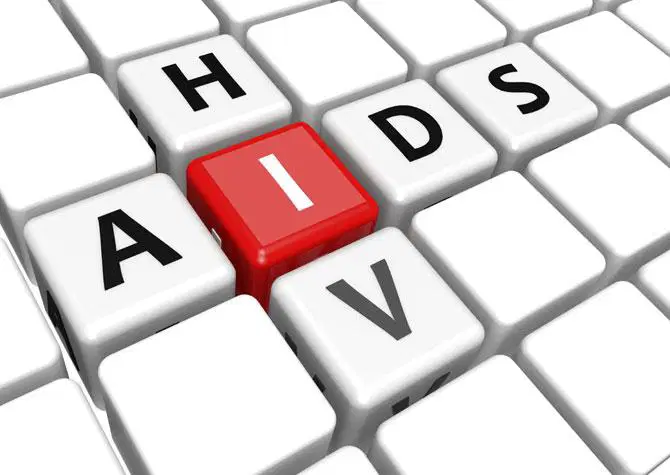Health
India bans addictive opioids exported to Nigeria, others

Two unregistered and highly-addictive opioids illegally imported into some West African countries from India, have been banned by the Indian Food and Drug Administration.
This is following last week’s BBC Eye investigations that exposed how Aveo Pharmaceuticals, a Mumbai-based company, was illegally exporting a harmful mix of tapentadol and carisoprodol into Ghana, Nigeria, and Cote d’Ivoire – fueling a public health crisis in parts of West Africa.
The hammer fell on the drugs following a raid by India’s Food and Drug Administration on the indicted factory in a sting operation that saw Aveo’s entire stock seized and further production halted on Friday, even as further legal action is to be taken against the company.
Dr Rajeev Singh Raghuvanshi, India’s Drugs Controller General, has also withdrawn permission to manufacture or export the drugs. The ban covers all combinations of tapentadol and carisoprodol.
Quoting a letter from Raghuvanshi in an update, the BBC stated that permission to manufacture and export the drugs has been withdrawn with immediate effect.
It quoted the agency saying that it was “fully prepared” to take action against anyone involved in “illegal activities that tarnish the reputation of the country”.
The FDA has been instructed to carry out further inspections to prevent the supply of the drugs, it said.
Tapentadol is a strong opioid while carisoprodol is a muscle relaxant so addictive it is banned in Europe.
Although the US allows short-term use (up to three weeks), withdrawal causes anxiety, insomnia, and hallucinations.
A combination of the two drugs is not licensed for use anywhere in the world as they can cause breathing difficulties and seizures and an overdose can kill.
But despite the dangers, the opioids are popular street drugs in many West African countries, because they are so cheap and widely available.
Export data show that Aveo and a sister company called Westfin International, has shipped millions of these tablets to West African countries.
Nigeria, with a population of 225 million people, provides the biggest market for these pills. It has been estimated that about four million Nigerians abuse some form of opioid, according to the National Bureau of Statistics.
As part of the investigation, the BBC also sent an undercover operative – posing as an African businessman looking to supply opioids to Nigeria – inside one of Aveo’s factories in India, where they filmed one of Aveo’s directors, Vinod Sharma, showing off the same dangerous products the BBC found for sale across West Africa.
The agent told Sharma he planned to sell to Nigerian teenagers. He said they loved the product.
Sharma said “OK”. He explained two or three pills would help users “relax” and get “high”. Sharma later admitted the product was “very harmful”. He added, “nowadays, this is business”.
Sharma and Aveo Pharmaceuticals did not respond to a request for comment when the BBC’s initial investigation was published.
The BBC also found packets of the pills with the Aveo logo for sale on the streets of Nigeria and in Cote d’Ivoire.
Health
UN welcomes US aid exemption for HIV treatment

The United States Secretary of State, Marco Rubio, has approved an “Emergency Humanitarian Waiver” allowing continued access to US-funded HIV treatment across 55 countries.
The United Nations praised the decision, describing it as a vital step to “restore hope” for millions living with HIV. The waiver ensures funding for medication under the President’s Emergency Plan for AIDS Relief (PEPFAR), the world’s largest HIV/AIDS initiative.
The announcement follows President Donald Trump’s executive order temporarily suspending foreign aid for 90 days pending a review of funding allocations. While nearly all assistance was initially frozen, Secretary Rubio expanded exemptions to include core life-saving medical services.
PEPFAR directly supports treatment for over 20 million people living with HIV — two-thirds of those receiving care worldwide.
Winnie Byanyima, Executive Director of UNAIDS, expressed relief over the waiver. “This urgent decision recognizes PEPFAR’s critical role in the AIDS response and restores hope to people living with HIV,” she said.
The waiver permits the continuation of life-saving humanitarian assistance, including HIV treatment and essential supplies needed for service delivery.
UNAIDS pledged continued efforts to ensure that individuals living with or affected by HIV receive care. The organization emphasized the importance of maintaining other key components of PEPFAR’s work, such as HIV prevention, care, and support for orphans and vulnerable children.
Byanyima urged President Trump to prioritize America’s global leadership in the fight against HIV/AIDS, emphasizing the shared goal of ending the epidemic.
Health
Mpox: WHO, Africa CDC assist 17 countries to develop vaccination plans

The World Health Organization (WHO) and Africa Centres for Disease Control and Prevention (Africa CDC) have commenced the development of Mpox vaccination plans for 17 African countries with high infection rates.
This was disclosed by the latter in a statement issued at the weekend.
According to it, experts from the two organisations gathered in Brazzaville last week with country representatives and partners, from Tuesday through Thursday, to provide guidance for the development of targeted Mpox vaccine preparedness and deployment plans to ensure that available doses are used efficiently.
In anticipation of further Mpox vaccine deliveries to the African region in the coming months, countries had requested support on identifying and mapping Mpox hotspots, based on the local epidemiology and the planning of targeted vaccination strategies to reach at risk of Mpox populations.
WHO Regional Director for Africa, Dr Matshidiso Moeti, said that given the ongoing difficulties with bringing the outbreak under control using traditional public health measures, the need for effective mpox vaccine preparedness and deployment plans had become urgent.
“With the mpox vaccine supply constraints, countries will need to develop very targeted deployment plans, guided by local epidemiology”, he added.
More than 120 participants from 17 countries along with partners from Gavi, the Vaccine Alliance, UNICEF, United States Centers for Disease Control and Prevention, United States Agency for International Development, and with support from Canada participated in the 5-7 November 2024 Regional Mpox Vaccine Preparedness and Deployment Plan Development meeting.
During the meeting, WHO and Africa CDC experts provided countries with the most up to date information on current WHO recommendations and a set of tools to guide Mpox vaccination plan development.
Both organisations have made concerted efforts to help countries acquire vaccines amid ongoing outbreaks.
WHO added the MVA-BN vaccine to its prequalification list on 13 September 2024; and established an Access and Allocation Mechanism (AAM) to facilitate better access to vaccines, treatments and tests where they are most needed.
Mpox vaccine deployments were delayed on the continent and the supply is likely to remain limited in the near- to medium-term.
However, recently three countries in the African Region – Rwanda, the Democratic Republic of the Congo (DRC), and Nigeria – received a total of 280,000 doses.
Initial vaccination efforts have started in the DRC and Rwanda and more than 50,000 doses have been administered.
The Director General of Africa CDC, Dr. Jean Kaseya, said that the swift actions of countries across Africa to roll out targeted mpox vaccination strategies reflect an extraordinary commitment to protect those most vulnerable.
“Achieving this progress within a short window of time underscores the ambition and resilience of our member states to halt transmission and safeguard at-risk populations.
“This momentum speaks to the power of collaboration across the continent and with our global partners. Africa CDC remains unwavering in its support, equipping countries with essential tools, guidance, and resources to drive impactful progress in controlling mpox”, he stated.
WHO and Africa CDC, and other partners are working together in the Continental IMST to support countries to prepare for and respond to mpox outbreaks, not just through vaccination, but also in areas such as diagnostics, case management, risk communication and community engagement.
The collaboration between agencies comes at a critical time, as mpox cases continue to rise on the continent and new cases are reported outside Africa.
As of November 6, more than 11,000 laboratory-confirmed cases had been reported since the start of 2024.
Four countries (South Africa, Guinea, Cameroon and Gabon) in October 2024 moved to the ‘controlled phase’ after reporting no new cases for six weeks. Fourteen other countries are currently experiencing active outbreaks in Africa.
The regional meeting focused on support for Burundi, Cameroon, Central African Republic (C.A.R), Côte d’Ivoire and the Democratic Republic of the Congo.
Other countries are: Gabon, Ghana, Guinea, Liberia, Kenya, Nigeria, Republic of Congo, South Africa, Tanzania, Uganda, Zambia and Zimbabwe.
-

 News8 months ago
News8 months agoI’ll be president for all, Nwofe assures Igbo community in Yorkshire
-

 Politics9 months ago
Politics9 months agoWe’ll represent you well, Awka North councillors assure constituents
-

 News9 months ago
News9 months agoUK: Igbo community in Yorkshire elects new leaders
-

 News7 months ago
News7 months agoAPGA mourns as deputy chairman buries father in Anambra
-

 Sports10 months ago
Sports10 months agoEPL: Guardiola welcomes ex-Man Utd manager to Manchester City
-

 Features9 months ago
Features9 months agoNestlé: How we’re tackling climate change, promoting environmental sustainability globally
-

 Politics9 months ago
Politics9 months agoAwka North’ll witness massive development under my watch –Anago
-

 Business6 months ago
Business6 months agoMultichoice announces new price hike for DStv, GOtv packages
